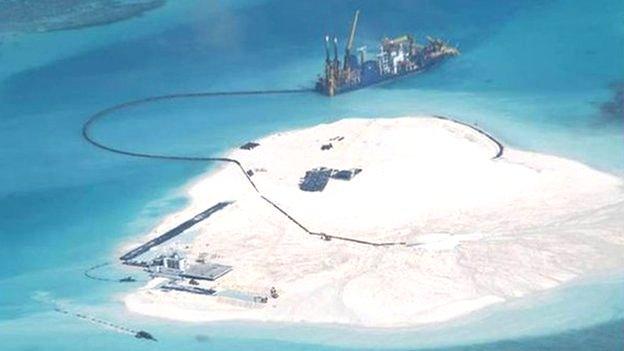The sleepy island Indonesia is guarding from China
- Published
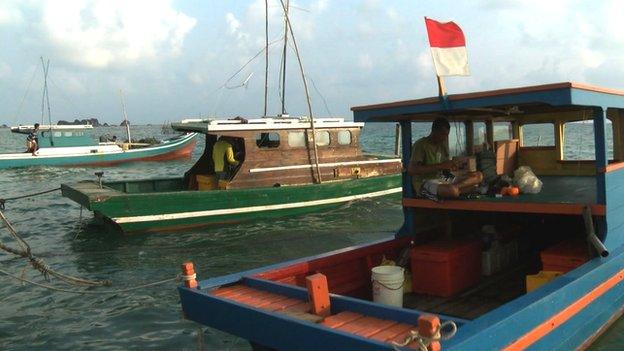
Most of the people living on Natuna are fishermen and farmers
Dawn breaks gently on Natuna Island.
A few lonely fishing boats head out into the ocean, and another group of men hammer away at an old wooden boat, in the hopes of taking it back out to sea. It's just another regular day on quiet, peaceful Natuna.
Boy has been a fisherman here all his life - it's in his blood.
It's a calm, routine existence: one day no different from the next. But beneath the surface, there's a storm brewing.
"I've noticed in the last few years that there's been an increase in the military presence here," Boy tells me as we bump along the rocky ocean in his rickety boat.
"We've seen more soldiers on the island. I think they're here because our island lies on the border. There may be threats from countries like China and others."
Rich waters
Back on dry land, and overlooking the vast expanse of the South China Sea, it's hard to imagine how this tiny backwater of a place could become a flashpoint in any conflict.
There are fewer than 100,000 people on Natuna, most of them fisherman and farmers.
Life moves very slowly here - but what's at stake is what's in the waters off the coast of Natuna: billions of dollars of fish and natural gas reserves that Indonesia says it owns.
And the Indonesian army is taking no chances. It is increasing its forces on the island - deploying US-bought Apache helicopters and sending another battalion here in 2015.
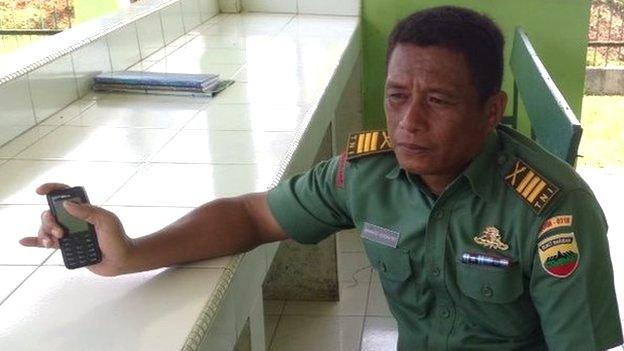
Bambang Hendratno is part of the security forces Indonesia is building up on Natuna
"Natuna is the furthermost island in Indonesia, and it's on our border in the South China Sea," said Bambang Hendratno, a senior military official in Natuna.
"We need to add more forces here. We shouldn't wait till something happens before we add more men. We've seen Malaysia and China already get into scuffles over competing claims. Before something happens we should act - rather than after something happens."
The South China Sea is a contested waterway - China, Malaysia, the Philippines and Vietnam all lay claim to it.
Indonesia says it has no territorial interests in these waters - but look closely at the map, and it's a different story.
"Natuna Island is located up north in the South China Sea and the potential conflict zone where China's nine-dash line and Indonesia's exclusive economic zone off the coast of Natuna overlap," Iis Gindarsah, a defence researcher at the Centre of Strategic Studies in Jakarta tells me.
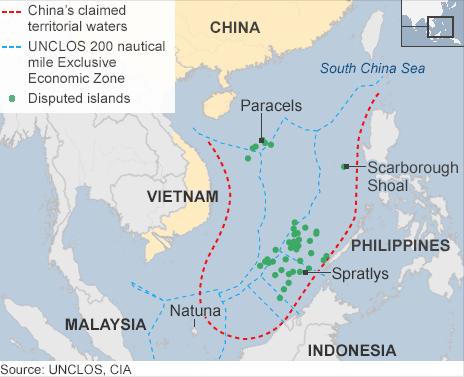
"If the maritime boundaries aren't clarified, then the potential of further escalation of conflict is there."
"There have been some of cases where China has tried to come into Vietnam's maritime boundaries and the same situation could happen here in the future."
The nine-dash line marks out China's island claims in the South China Sea.
Stability and prosperity
But Indonesia's government insists that Indonesia and China won't clash over the South China Sea, and that the two nations will solve this problem diplomatically.
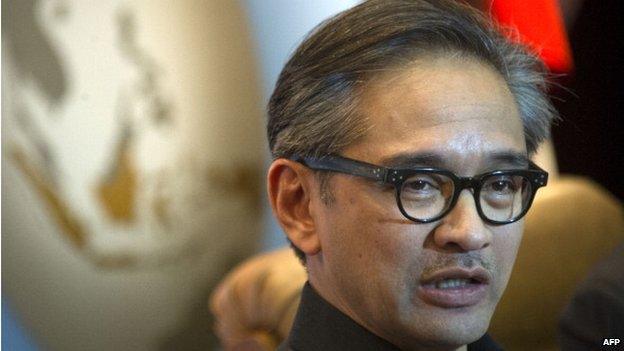
Mr Natalegawa says Indonesia and China are able to solve the problem diplomatically
"There may not be an actual overt intention to be aggressive," Marty Natalegawa, the Indonesian foreign minister told me.
"Or to take over land in a classic sense - but what may happen is miscalculation. Then you have action and re-armament. What was initially an arms build-up becomes an arms race."
"We don't have to follow that script - we have all prospered because we have had stability."
Back on Natuna, it's obvious how much that stability is prized among the local population.
This island is a picturesque, idyllic place - but it stands on the frontline of a potential clash between Indonesia and China.
Although the possibility may seem remote at the moment, Indonesia has to balance its interests delicately while making sure it keeps its borders safe.
- Published7 July 2023
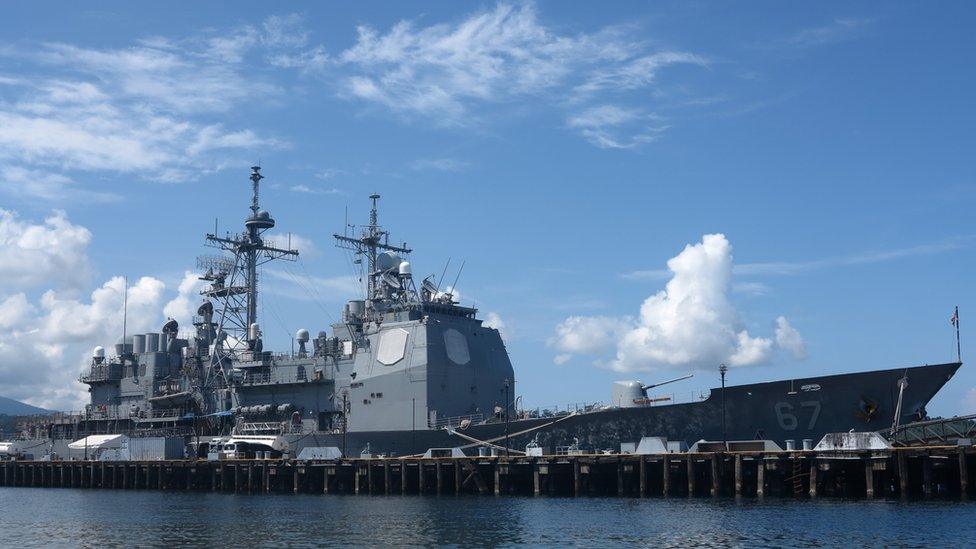
- Published9 September 2014
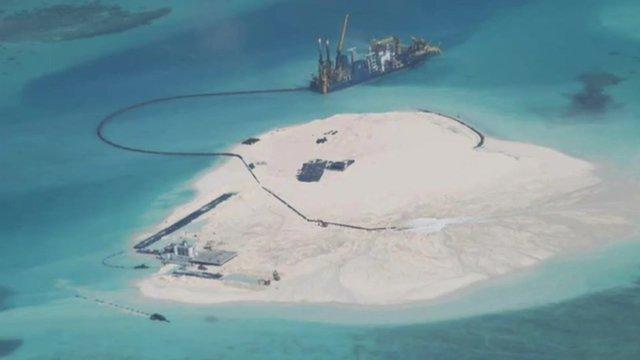
- Published10 September 2014
